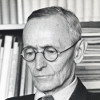“ The free intellect will see as God might see, without a here and now, without hopes and fears, without the trammels of customary beliefs and traditional prejudices, calmly, dispassionately, in the sole and exclusive desire of knowledge—knowledge as impersonal, as purely contemplative, as it is possible for man to attain. ”
Bertrand Russell, The Problems of Philosophy (1912). copy citation
| Author | Bertrand Russell |
|---|---|
| Source | The Problems of Philosophy |
| Topic | belief prejudice |
| Date | 1912 |
| Language | English |
| Reference | |
| Note | |
| Weblink | http://www.gutenberg.org/files/5827/5827-h/5827-h.htm |
Context
“Everything, in contemplation, that is personal or private, everything that depends upon habit, self-interest, or desire, distorts the object, and hence impairs the union which the intellect seeks. By thus making a barrier between subject and object, such personal and private things become a prison to the intellect. The free intellect will see as God might see, without a here and now, without hopes and fears, without the trammels of customary beliefs and traditional prejudices, calmly, dispassionately, in the sole and exclusive desire of knowledge—knowledge as impersonal, as purely contemplative, as it is possible for man to attain. Hence also the free intellect will value more the abstract and universal knowledge into which the accidents of private history do not enter, than the knowledge brought by the senses, and dependent, as such knowledge must be, upon an exclusive and personal point of view and a body whose sense-organs distort as much as they reveal.”
source



